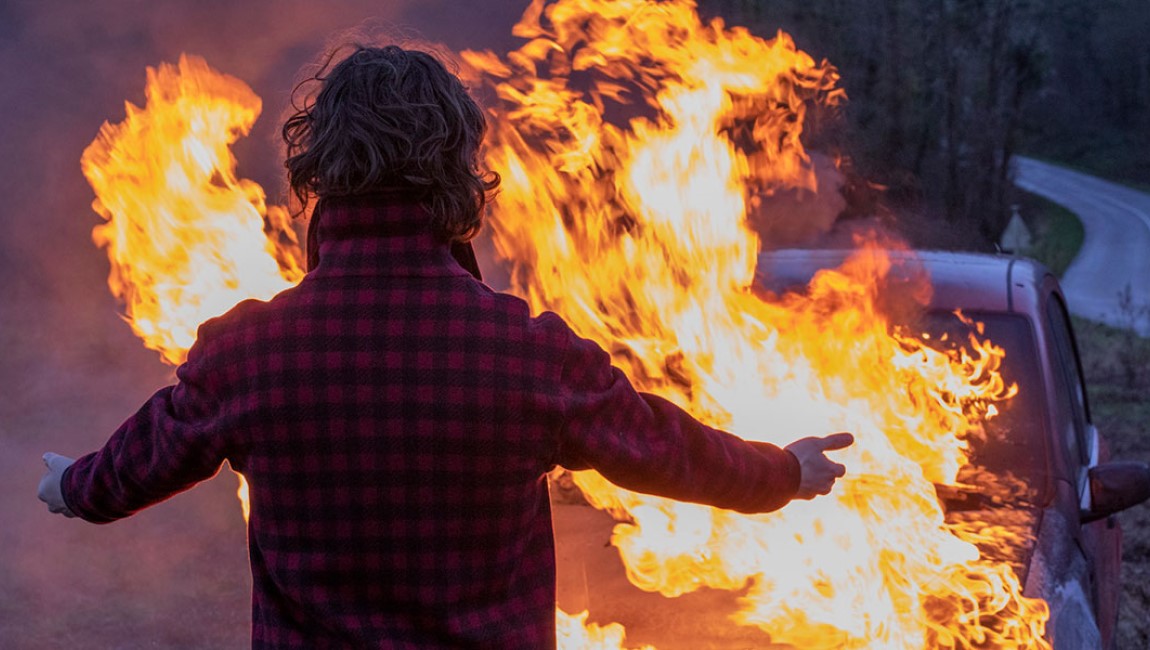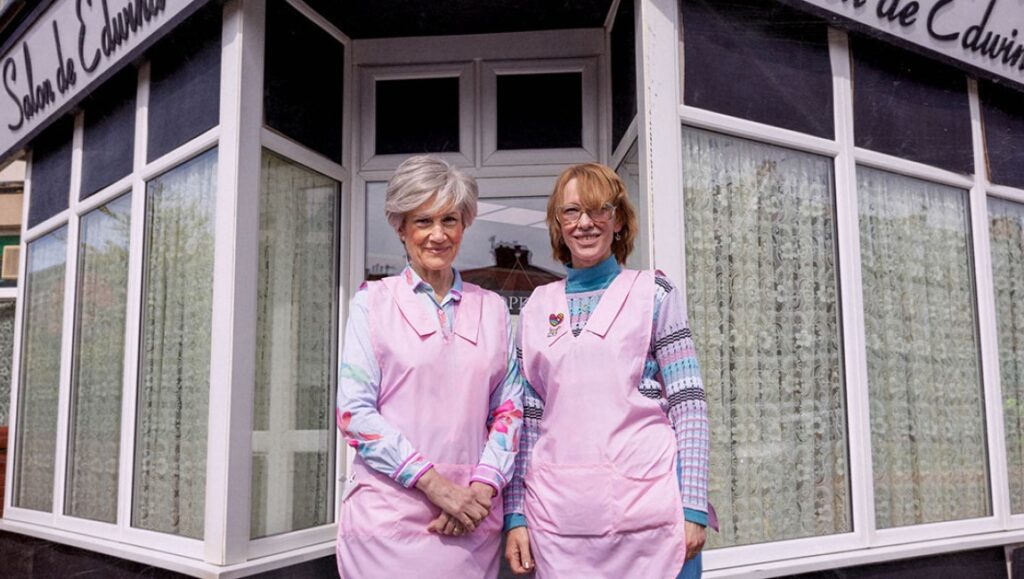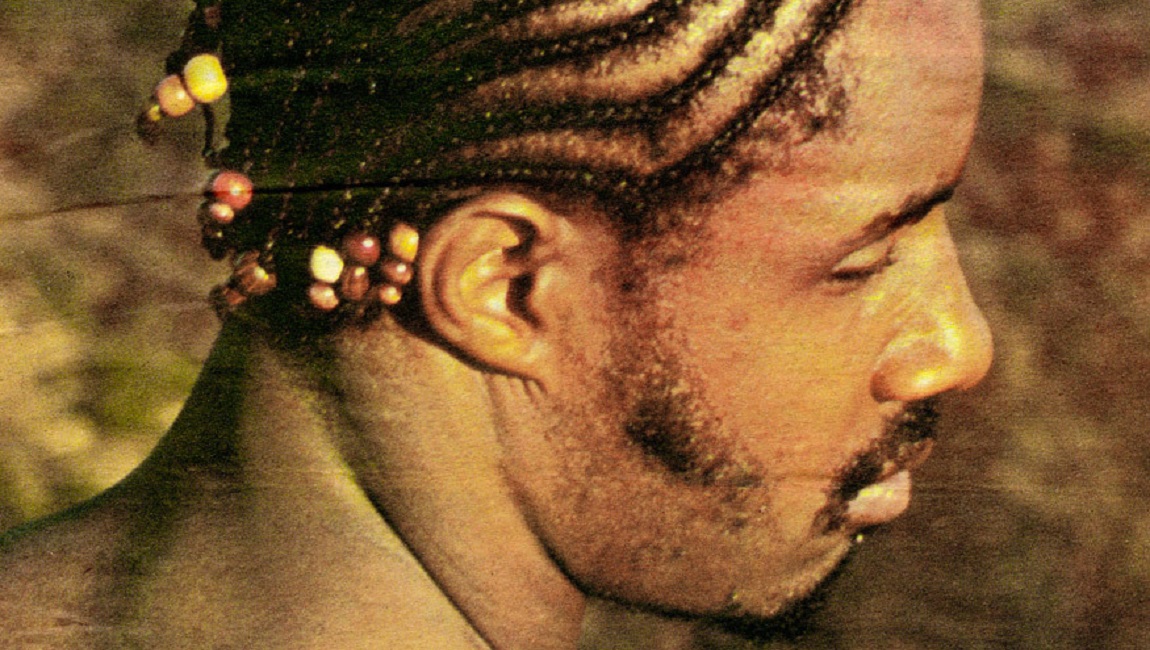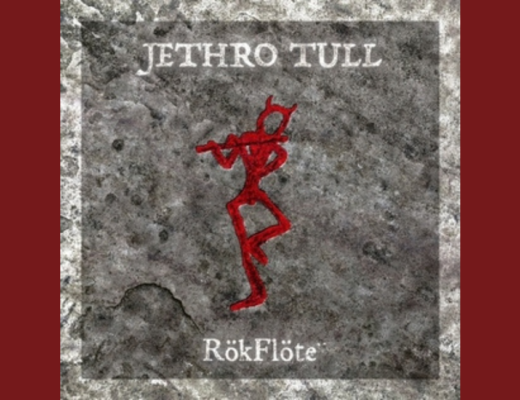Winter Boy
Those about to eulogize reach for poetry; for anyone, mourning periods commingle, confuse, and unpredictably change one’s experience of time. But in Christophe Honoré’s Winter Boy (La lycéen), the director applies a stripped-down approach. While his curatorial touches are still all over the playlist (‘80s new-wave pop stars Orchestral Manoeuvres in the Dark figure prominently), and his visual approach to acting ranges from black-box monologues to semi-improvised ‘Scope handheld close-ups that seek to “grab moments” of spontaneity, this is a film that imitates the depressive longueurs of its translated title’s season.
Part of this is pure narrative focus: we’re with Lucas (Paul Kircher), a now-fatherless 16-year-old, not his mother (Juliette Binoche) or older brother (Vincent Lacoste), both of whom are noticeably sidelined. Lucas’s presence, which is alternately goofy, manipulative, and implosive, is anchored by an articulate retrospective voiceover (which we also get glimpses of, delivered to the camera, as a kind of therapy, theater, or thinly developed theme). This contextualizes his otherwise egocentric and distanced way of processing his loss (which is only directly confronted in a single flashback — featuring Honoré as his father), but also bounds the film’s emotional valence: everything, we know, will get better, and no experience exists independent of an explanation. As a way of presenting the emotional violence of youth, we are given a reliable narrator.
Honoré, in this way, takes an ostensibly personal film and dresses it up in the polished realism of less distinctive directors like Audiard or Sciamma. Periodically, we receive hints of other directions leading away from Lucas’s obsessively detailed journalling of the time immediately preceding and the week following his father’s funeral, but all are closed off: Binoche’s teaching job, Lacoste’s curatorial appointments in Paris, even a trip to the Louvre are so much small talk — an approach that reaches its nadir in the family arguments that culminate as out-of-town visitors gather in the family’s small hometown (nestled at the base of a mountain in France’s Auvergne-Rhône-Alpes region).
Instead, the incidents Honoré highlights are outgrowths of Lucas’s transmuted emotions: he’s aloof with his friends, overshares with hook-ups, and possessively tries to seduce his brother’s boyfriend. None of these threads culminate; rather, the film ascends into near-tragedy and schmaltz. As a portrait of grief that avoids extremes, Winter Boy is tasteful to a fault. We can see that, denied the normative rite-of-passage markers of late-adolescence, Lucas is casting about for something new to aim for: he seems to have no particular interests of his own, nor does he want to adopt those of the people around him. To surround this chaos with near-diagnostic maturity is less a useful balance on the part of Honoré, and more a stodgy mischaracterization.
Writer: Michael Scoular
Sanctuary
A subgenre seems to be forming around Christopher Abbott. Coming to prominence working with the filmmakers of Borderline Films and starring in the first two seasons of Lena Dunham’s Girls, he’s something of an American indie movie star. After 2020’s Black Bear, a bifurcated narrative about filmmaking, and 2021’s On the Count of Three, a film that begins with a suicide pact, daring writer/director/co-star Jerrod Carmichael to discover a satisfying ending, a line could be drawn between two high-premise acting challenges featuring Abbott. Now, with Zachary Wigon’s sophomore effort Sanctuary, a third point anoints a trend.
Wigon’s chamber piece stars Abbott as Hal, set to take his recently departed father’s place as CEO of a hotel chain, and Margaret Qualley as Rebecca, a dominatrix who has a longstanding relationship with Hal. The film’s opening set piece depicts a session between Hal and Rebecca that he intends to be their last. But when she decides the watch he gives to her is not a sufficient reward for what she has provided to him — not just sexual gratification, but the assertiveness he will need to succeed in his new position — a game of power ensues between the two.
The opening minutes of the film feature a double fake-out. Quickly, Hal pauses the roleplay so that Rebecca can consult the script he’s written for her. However, by the time Hal comes, we have realized that this intrusion was also a part of the script — one Rebecca praises for calling back to their initial session. And so, the script that Hal wrote as a coda for his and Rebecca’s relationship becomes an introduction to Wigon, Abbott, and Qualley’s examination of performance.
By featuring the intrusion of reality into performance early in the film, Wigon and screenwriter Micah Bloomberg (Homecoming) prime the viewer for a similar meta twist to recur — if not an incursion of the reality in which they are making a film and Christopher Abbott and Margaret Qualley are playing characters, then one of some intermediary layer of reality in which Abbott and Qualley’s characters shift. Such a twist might allow the viewer to feel smarter than the film, but its take on performance is subtler, and Wigon never pulls the rug out from under us as sharply as he does initially. Though Abbott and Qualley are essentially playing the same Hal and Rebecca we are introduced to after their roleplay ends throughout the rest of the film, both characters employ a slippery combination of performance and truth as they grapple for power. As the plot progresses and the couple dole out revelations, we wonder if each is the truth or a calculated move — the answer is most often both.
Rather than attempting to shirk the limitations of a film set in a single location, Abbott and Qualley use the hotel room as a stage on which to perform. When they need to dominate the scene, they dominate the space, the choreography. Wigon and cinematographer Ludovica Isidori follow suit, sometimes content to let the actors rip, but willing to flit, bob, or invert between them. It’s showy work on the part of all involved, but rarely ostentatious.
The borders between reality and fiction, performance and truth, have been a popular subject for filmmakers this young century, and perhaps never more than at this particular moment. Wigon embarks upon an exploration of these themes without delving into a hybrid form which, as Michael Sicinski observes in his review of Viking, is a safer endeavor. But in a story centered around BDSM, the potentially illusory nature of safety, of the sanctuary Hal and Rebecca come to desire, is the point. And so, if Sanctuary feels like an exercise at times, it’s one that remains consistently compelling and ultimately moving throughout its machinations.
Paris Memories
It goes without saying that the city of Paris, more than any other megalopolis, has — as a constant of film history — provided an unending range of both visual and narrative fodder, and also embodied a certain characteristic that can not only present itself as a milieu, but also, in the hands of different auteurs, be reshaped and remolded more crucially as a major character in its own right. In this manner, Alice Winocour’s fourth feature, Paris Memories (originally titled, Revoir Paris) — inspired by the Bataclan concert hall attack of 2015 which her brother survived — is a modern-day Parisian (melo)drama about a translator named Mia (portrayed by the adorable and enchanting Virginie Efira) who, during an otherwise relaxed evening, suddenly finds herself caught up in the tragic turmoil of a terrorist attack. Mia miraculously escapes the horrifying ordeal, but it nonetheless imprints such profound emotional wounds upon her that her very memories are affected; she withdraws into a post-traumatic state of amnesia which, months later, will lead her into an everyday urban quest to recollect the missing parts.
Through the aid of a series of encounters with other survivors, Mia tries to reassemble the bigger picture of that haunting evening, all while wrestling with mixed feelings: sympathy, love, guilt, grief. In one scene, Mia accompanies young Félicia (Nastya Golubeva Carax) — who has lost her parents in the attack — to an art museum in order to find a specific detail in Claude Monet’s famous Water Lilies. But as much as this search for lost memories and joys enables Mia to both discover hitherto unseen aspects of Paris (notably, in her search for a Senegalese kitchen worker, she finds herself in a poor immigrant district) and have a deeper understanding of other victims’ damaged psyches, forging more intimate bonds with strangers in the process, the film’s somewhat loose narrative does not always demonstrate conviction; Paris Memories’ most tender side isn’t entirely fleshed out organically, though it’s perhaps more apparent in certain instances, such as an encounter between Mia and Thomas (Benoît Magimel) which precipitates an eventual romantic affair.
Still, despite the lack of an entirely taut story, and the sense that Winocour’s directions remain conservatively rooted in a familiar sense of mise-en-scène, what does count — apart from Efira’s effectively moving presence — is the filmmaker’s gentle tone and observational approach, both of which help create distance between the film’s core — Mia’s interiority — and the clichéd socio-political intrusions that pepper its narrative. Even more important to its success, Paris Memories’ unique sound design (a simultaneous array of Anna von Hausswolff’s ambient score, a melange of urban soundscapes, and the film’s easy-flowing dialogues) and its soft, velveteen visuals, courtesy of DP Blaise Harrison, enhance the captivating mood and atmosphere through which Mia’s journey is filtered. Both delightfully serene and enigmatically melancholic, while also dotted with moments of genuine fright and unexpected ardor, Paris Memories modestly bestows upon viewers a sense of what it truly means to recover the essence of being alive in the wake of our darkest and most desperate hours, all poignantly set within the romanticized French capital. After all, Paris est toujours Paris.
Leonor Will Never Die
Heavy genre heads will know of the legacy of Filipino action: extra low-budget, scrappy productions that tended to mimic Western action films and cop thrillers. Sometimes you had stuff produced for the local market, like the comedic Rambo knock-off No Blood No Surrender, and at other times you had the likes of legendary filmmakers such as Eddie Romero or Cirio Santiago making Mad Max rip-offs or girls-in-prison trash to export to American drive-ins. Either way, it’s a ripe backdrop for Martika Ramirez Escobar‘s Leonor Will Never Die, a mostly sweet but occasionally acidic bit of self-reflexiveness.
Leonor (Sheila Francisco) is an elderly, long-retired filmmaker living in Manila. She struggles to pay the bills, as her dumb-dumb hectoring son Rudie (Bong Cabrera) keeps reminding her. Her good son, the deceased Ronwaldo (Rocky Salumbides), appears to her in spirit form and was also the inspiration for a final, unfinished film called The Return of Kwago. When Leonor spots a flyer for a screenwriting contest, she’s inspired to channel all of her baggage into completing Kwago, but that plan gets interrupted when a quarreling neighbor couple accidentally drops a TV on Leonor’s head, sending her into a coma, and treating us to a fugue state in which Leonor inhabits the fantasy world of the action films she spent a career cranking out, and one where her real-life friends and family have goofball counterparts.
The recreation of vintage Pinoy action cinema here is outstanding. Aside from the obvious shift to a VHS-friendly 4:3 aspect ratio, the compositions and editing have a distinctly B-grade sheen, and the action sequences are filled with junky prop machine guns, endless squibs, and dangerous-looking stunts. As Leonor finds herself trapped in this diabolical headspace, of course she finds opportunities to exorcize some of her personal demons; there’s a little bit of Everything Everywhere All At Once at work here, centering a character stuck in a loop of her own psychic construction. Further, as Leonor realizes that maybe she’s a bit of a villain in her own creations, putting the characters she creates through endless, cruel jeopardy, it’s tempting to ascribe some political context to the film. Is Leonor a stand-in for Filipino strongman leaders like Marcos or Duterte? That may be a stretch, but if Leonor Will Not Die isn’t actually more than a sweetly thoughtful drama disguised as a lovingly recreated genre throwback, that’s perfectly fine. If it’s up to something a little more canny, so much the better.
Writer: Matt Lynch
Concrete Valley
In his critical study “Discourse and the Novel,” Russian literary theorist Mikhail Bakhtin described narrative fiction as a process by which individual characters are defined by their own semi-private ways of speaking, formed and conditioned by their personal histories, cultural backgrounds, and the possibilities of their time. The novel, then, is a space where these unique “idiolects” intersect and engage with one another, producing a complex tapestry of worldviews in contention. But what happens when those idiolects don’t intersect? In Concrete Valley, the second feature film by Canada’s Antoine Bourges (Fail to Appear), characters don’t so much interact as bang against each other like billiard balls, knocking one another onto skewed trajectories.
At its core, Concrete Valley is an examination of a brief period in the lives of a Toronto family who emigrated from Syria five years prior. Rashid (Hussam Douhna) was a doctor, and although we see him paying drop-in medical visits to residents of his apartment block, it is not clear whether or not he is currently working. His wife Farah (Amani Ibrahim) was a stage actress back home, but is now working as a clerk in a pharmacy. The couple has a young son, Ammar (Abdullah Nadaf), who seems to be having trouble fitting in at school, but is never forthright with his parents about exactly what is going on.
Bourges articulates a number of different layers of alienation that affect this family in their daily lives. While a significant part of their struggle comes from trying to make their way in a new country, they have found their place within an Arab-Canadian community, and are by no means isolated. But a number of interactions are complicated by the fact that they speak imperfect English. Rashid is taking language classes with a friend, Suliman (Suliman Hafed), and a benign class assignment — describing a first date — becomes a point of contention between the two men. Rashid tries to coax Suliman into divulging details, as the exercise requires, but he feels that both Rashid and the assignment are a challenge to his privacy. Later at the family dinner table, Farah recounts an altercation from her workday, when a man (with his own “foreign” accent) accosts Farah for allegedly putting his wife in the hospital by recommending a skin cream to which the woman had an allergic reaction.
Instead of taking Farah’s side, Rashid chastises her for not knowing the ingredients of the cream she sold. This goes to the heart of the primary conflicts that define Concrete Valley. The family’s interactions with the larger world are often complicated by the fact that they are still trying to master the English language and Canadian cultural norms. But the more pressing issue is the simmering resentment between Farah and Rashid. Her job creates scheduling problems, they spend less and less time together, and neither of them is satisfied with their overall situation. Attempts to reach out to the broader community are also awkward and unpredictable. Farah gets involved with a community group led by Saba (Aliya Kanani), only to discover they will be picking up trash around the building; Rashid tries to assist a neighbor, Yanah (Lynn Nantume), who was injured in a car accident, but his professional demeanor slips into somewhat aggressive amorous overtures.
In another context, one could imagine many of the conflicts in Concrete Valley being played for laughs, within the now-common framework of the “comedy of embarrassment.” But Bourges depicts these situational misfires with a modest, declarative form of performance and camerawork that recalls the subtlety of Dan Sallitt (Seventeen, The Unspeakable Act). Even the most emotionally fraught situations are drained of overt drama, presented with the matter-of-fact melancholy one experiences when attempts at personal connection go awry. In the film’s final scene, Rashid reads a story in his English class, one that goes to the heart of his own self-identity — his desire to be a healer and civil role model. When the teacher merely corrects his use of past tense, it’s like the entire film in microcosm. Concrete Valley suggests that the immigrant experience, like all other human experiences, is in large part a misalignment between speaker and listener, intention and reception, form and content.
Writer: Michael Sicinski
Documentary Now!
Returning this year for its fourth season is Bill Hader, Rhys Thomas, Seth Meyers, and Fred Armisen’s parody passion project, Documentary Now!, an anthology series that takes for its target the rich cinematic history of documentary. Complete with introductions from Helen Mirren and outstanding production values, the series teasingly positions its documentaries as authentic, despite their star-studded casts and nonsensical plots.
Documentary Now! has always been an effective and genuinely delightful comedy for cinephiles and casual moviegoers alike, with reference points ranging as from Grey Gardens and Nanook of the North to more recent, commercial fare like Wild Wild Country and any number of VICE productions. In past seasons, Armisen’s chameleonic accent skills and musical talent have been married with Hader’s own particular comedic chops, as well as his encyclopedic cinematic knowledge, to truly wonderful effect. But despite being parodic, Documentary Now! has always come from what is clearly a place of sincere admiration for the medium, and even though Hader’s absence this season is deeply felt, his loving attention to detail remains. The previewed episodes parody Werner Herzog’s Burden of Dreams and Pippa Ehrlich and James Reed’s My Octopus Teacher, drawing so expertly on the stark landscapes of the former and the mawkish, lingering camerawork of the latter that their premiering at a film festival feels entirely appropriate. Now, as ever, Documentary Now! remains a devoted tribute to its own art form, and its cinematic flourishes remain as impressive as they’ve ever been.
If there is any critique to be made of these new episodes, it’s that perhaps that love is too blind. The show never seems to venture beyond gentle mockery of either of its subjects, even with all the easy targets that My Octopus Teacher paints on its own back. In a departure from its earlier seasons, season 4 of Documentary Now! seems content with pulling up short of its usual incisiveness and satirical edge; there’s not a hint of mean-spiritedness in these episodes, and the show suffers for it, with the parody left feeling somewhat empty without any real reflections on the filmmaking choices being so painstakingly recreated. If imitation is the highest form of flattery, then the team behind Documentary Now! are still clearly in awe of the genre, even in its weaker iterations, but even though these imitations are reliably funny and often inventive, these new episodes have lowered the show’s ceiling, kneecapped by their wholehearted love of their source material.
Writer: Molly Adams










